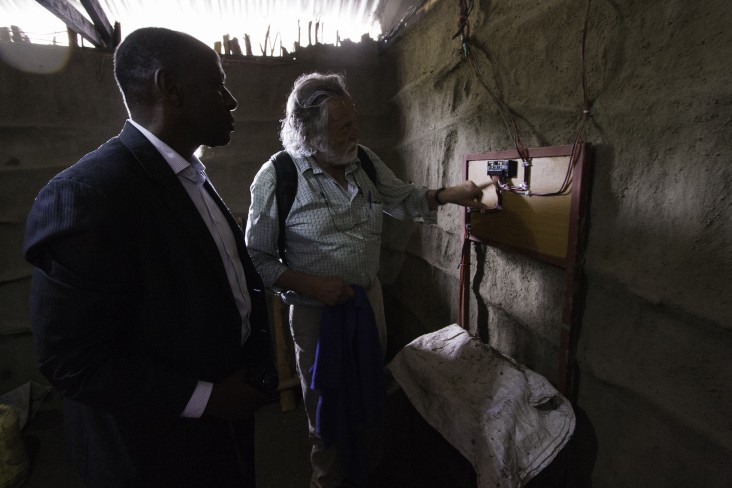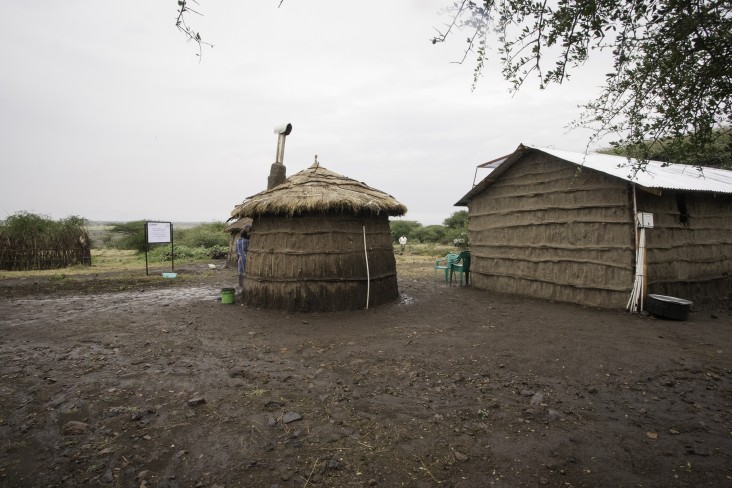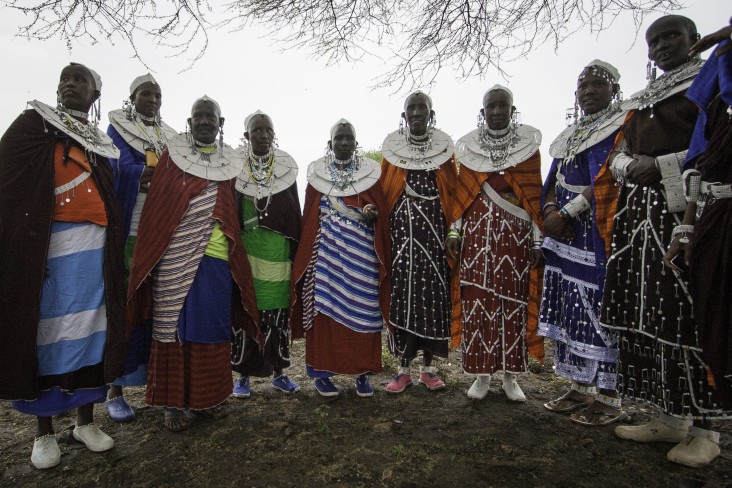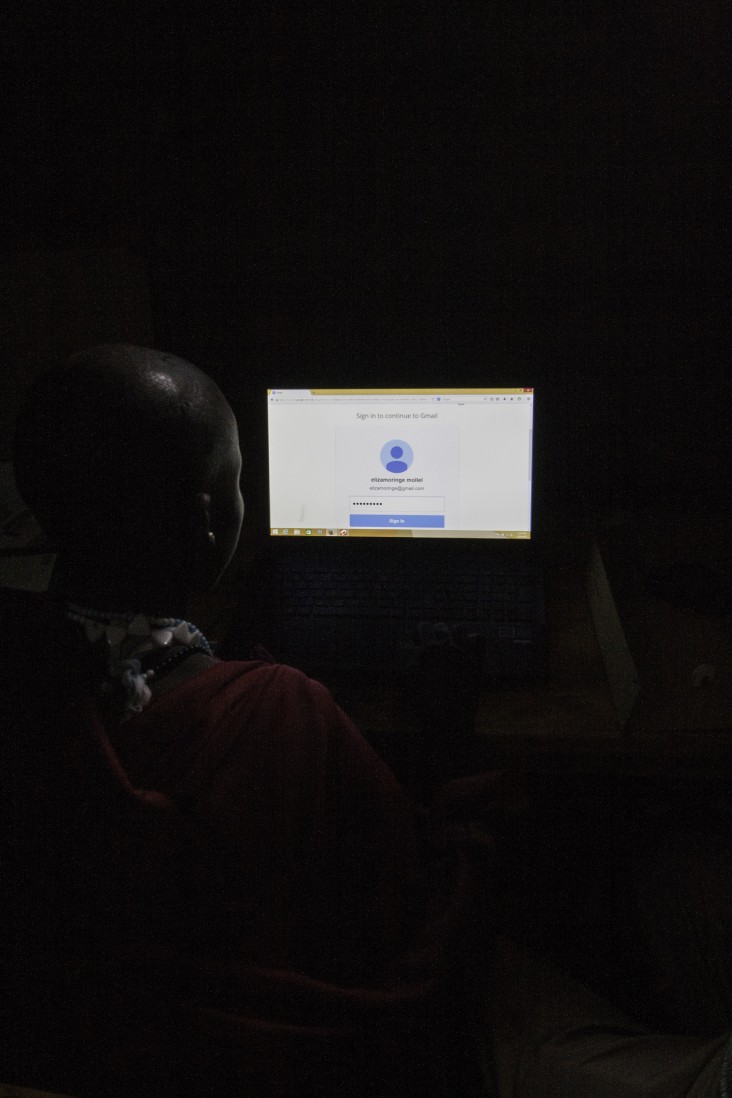- Where We Work
- Interactive Map
- Afghanistan and Pakistan
- Africa
- African Union
- Power Africa
- Trade and Investment Engagement
- Angola
- Benin
- Botswana
- Burkina Faso
- Burundi
- Cameroon
- Central Africa Regional
- Central African Republic
- Chad
- Côte d'Ivoire
- Democratic Republic of the Congo
- Djibouti
- East Africa Regional
- Ethiopia
- Ghana
- Guinea
- Kenya
- Lesotho
- Liberia
- Madagascar
- Malawi
- Mali
- Mauritania
- Mozambique
- Namibia
- Niger
- Nigeria
- Republic of the Congo
- Rwanda
- Sahel Regional
- Senegal
- Sierra Leone
- Somalia
- South Africa
- South Sudan
- Southern Africa Regional
- Sudan
- Swaziland
- Tanzania
- Uganda
- West Africa Regional
- Zambia
- Zimbabwe
- Asia
- Europe and Eurasia
- Latin America and the Caribbean
- Middle East
- Mission Directory

By Jessie Bryson, USAID Tanzania
Until recently, electricity in some parts of Tanzania was restricted merely to the electrical storms that slowly pass over the country’s vast plains during the rainy season. It is into this void we now find groups like the International Collaborative for Science, Education, and Environment (ICSEE) working to electrify the underserved parts of the country. With a grant from Power Africa, ICSEE is working with the Maasai people of Northern Tanzania to deliver reliable, low-cost, and low-maintenance power systems to rural communities.
Working with the Maasai since 2009, ICSEE initially collaborated with these communities to replace traditional three-stone, open fire, indoor cooking units. Research has shown that the smoke emanating from Maasai homes caused by these traditional units produced 15 times the level of lung-damaging particulate pollutants recommended by the World Health Organization for healthy living. By installing custom built, smoke-removing, clean stoves, ICSEE helped to reduce polluting particulate levels by ninety percent. Women reported respiratory health improvement in children and cleaner, more comfortable homes. Outside of the home, each stove saved 120 pounds of firewood each week and reduced wood gathering time by sixty percent. There are now 1400 homes improved in this way in Arusha region, with over 100 Maasai women stove technicians trained in 11 villages in the Monduli and Longido districts.
ICSEE’s work with the Maasai underwent a transition in 2014 when the organization was awarded a Power Africa grant provided through the Partnership for Enhanced Engagement in Research (PEER) program. Using the same commitment for community engagement to improve the quality of life that was key to the success of the clean stove project, ICSEE is now helping the Maasai people harness solar power for everyday use. With the trust and leadership established from previous collaborations, the Power Africa funded solar project grant is now allowing ICSEE to quickly pilot micro-grid electrification in ten Maasai settlements, known as bomas.

At each boma ICSEE is training a person to understand the engineering principals of the system, so if any maintenance is required, there is no need to look to ICSEE or even a worker from the city. ICSEE is also using these experts in new bomas to scale up, and will be used in the future to train more experts in new areas as the project grows.
Bomas were chosen based on selection criteria that included leadership, need, and size. The settlements’ leaders were first required to equip boma homes with ICSEE’s clean cook stoves, then to provide a dedicated building to house ICSEE-supplied electrical panels, batteries, controllers, and a shared mini-fridge and laptop computer. ICSEE engaged the entire boma community throughout the installation process: from mounting solar panels to installing the battery and charge controllers, as well as digging trenches to junction boxes, burying wires to connect homes, and rigging junction and fuse boxes. In each boma, men and women are provided with equipment to monitor the grid and were also trained as system electricians and computer experts.
In this holistic process of rural electrification, core strengths are being revealed and refined. As ICSEE President and Founder Robert V. Lange confidently said, "Going to scale will not be just replicating in more bomas what we will have done in the ten pilot bomas. The PEER Grant has initiated a process that will lead to continual change and improvement in micro-grid development."

Such partnership was on full display view earlier this year when men and women from Maasai communities throughout the Monduli region gathered in the Lobulu boma in Esilalei village to hold a ceremony to celebrate the launch of the first Maasai Solar Project. Two newly erected white fuse boxes stood in stark contrast to their surrounding boma structures. Outside of the cow corral—the Maasai’s main source of income and sustenance— two small light posts had been erected. The main electrification building was equipped with a brand new solar panel on the roof, and inside the building, visitors, regional officials, and boma leaders gathered to watch as Mr. Lange pulled out a small tray of ice cubes from the freezer unit of the mini-fridge.
Even at the start of the project, the women in the boma knew how powerful access to power would be. Elizabeth, a young Maasai woman, recalled, “It was September last year that I heard that electricity is coming to my boma. We got very excited. We knew all the benefits that we will be getting from it- especially the light. Now you can do everything you want at any time, during the day or during the night.”

Elizabeth has also benefited from learning to use the boma’s ICSEE-supplied laptop computer. Having completed Form IV (the equivalent of Grade 11), she is one of the most educated women at the boma and is considered a computer expert for the area. After three lessons in the nearby town, she has learned how to use the Internet to access information and is excited to learn how to use Microsoft Excel and Word soon. ICSEE views these computer experts as one of examples of the many longer-term benefits to the entire community.
Since the launch earlier this year, three additional bomas in the neighboring village of Enguiki have now completed micro-grid electrification. Last month, the ICSEE and Maasai started installation procedures in a sixth village, Losirwa, located deeper in the Rift Valley where conditions are much more harsh.
Accessible off-grid electrification is still understandably a dizzying concept for many in rural Tanzania to understand, but where the Maasai Solar Project is available, women can now better care for their infant children after dark. Men can assist calving at dusk without lighting dangerous fires. Medicine can be refrigerated and stored for emergencies.
Most importantly, the Power Africa supported project gives women like Elizabeth hope, opportunities, and a way to co-exist with the modern world around them. These women are empowered to do anything at any time, because as Elizabeth said “there is light at the boma.







Comment
Make a general inquiry or suggest an improvement.